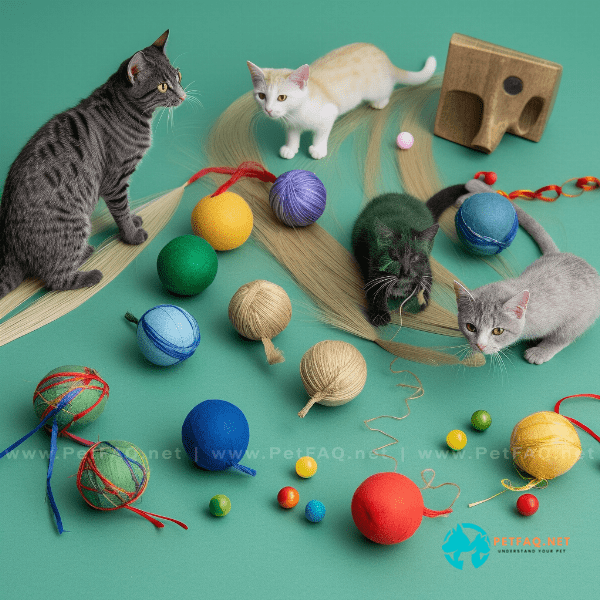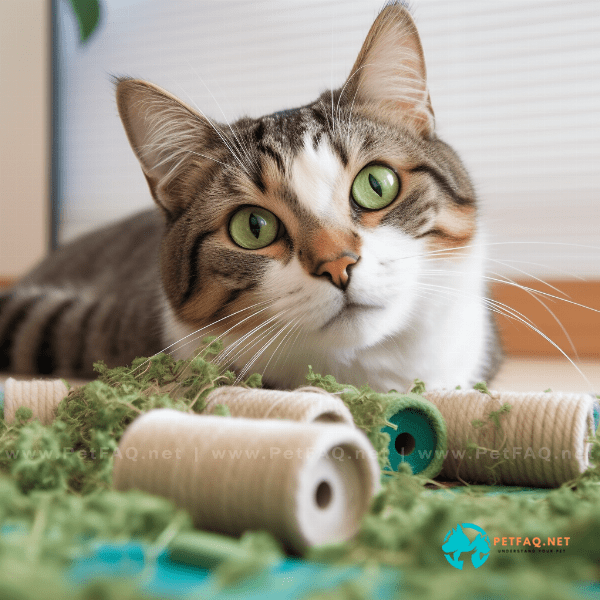Table of Contents
- What is Catnip Tea?
- The History of Catnip Tea and Its Use for Cats
- How Catnip Tea Can Benefit Your Cat’s Health
- The Relaxing Properties of Catnip Tea for Cats
- Making Your Own Catnip Tea: A Step-by-Step Guide
- Dosage and Precautions: Using Catnip Tea Safely for Your Cat
- Alternatives to Catnip Tea: Other Herbs for Feline Relaxation
- Real-Life Experiences: Cat Owners’ Stories of Using Catnip Tea with Their Cats
- Conclusion: Embracing the Calming Effects of Catnip Tea for Your Feline Friend
What is Catnip Tea?
If you’re a cat lover, you’ve likely heard of catnip – a fragrant herb that many felines go wild for. But did you know that catnip can also be brewed into a tea? Catnip tea is an herbal infusion made from the dried leaves and flowers of the catnip plant, also known as Nepeta cataria.
The Flavor and Aroma of Catnip Tea
Catnip tea has a distinct aroma and flavor, which can be described as earthy, slightly minty, and somewhat bitter. Some people even compare its taste to that of chamomile tea. While it may not be the most delicious tea you’ve ever tasted, catnip tea is generally safe and easy to prepare.
The Active Ingredient in Catnip Tea
The active ingredient in catnip tea is nepetalactone, a natural compound found in the leaves and stems of the catnip plant. Nepetalactone is what causes cats to have such a strong reaction to catnip – it acts as a stimulant and can induce feelings of euphoria and excitement.
Catnip Tea for Humans
While catnip tea is commonly associated with cats, humans can also drink it for its potential health benefits. Catnip tea is believed to have a calming effect and may help to relieve stress and anxiety. It has also been used as a natural remedy for headaches, colds, and flu symptoms.
In summary, catnip tea is a herbal infusion made from the dried leaves and flowers of the catnip plant. It has a distinct flavor and aroma, and contains the active ingredient nepetalactone. While it is often associated with cats, humans can also drink it for its potential health benefits.
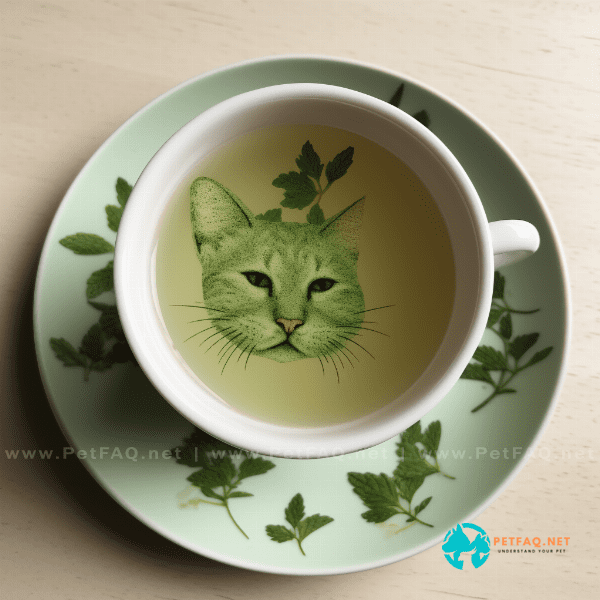
The History of Catnip Tea and Its Use for Cats
Catnip has been used for medicinal purposes for centuries, dating back to ancient civilizations such as the Greeks and Romans. However, the use of catnip for cats specifically is thought to have originated in the Middle Ages, when it was used to treat various feline ailments such as digestive issues and nervousness.
The Discovery of Catnip’s Effects on Cats
The use of catnip for cats was first recorded in the 1700s by Swedish botanist Carl Linnaeus. He observed that when cats came into contact with the plant, they would exhibit unusual behaviors such as rolling around, purring, and becoming more active.
Catnip Tea for Cats
Catnip tea is believed to have similar effects on cats as the fresh plant does. When consumed, it can induce feelings of relaxation and calmness in felines, and may even act as a natural sleep aid. It is also believed to have potential benefits for cats with digestive issues, such as bloating or constipation.
The Cultural Significance of Catnip Tea
Catnip tea has been a part of many cultures for centuries. In Japan, for example, catnip tea is known as “matatabi tea” and is believed to have a calming effect on cats. In some parts of Europe, catnip tea has been used to treat menstrual cramps in women. In the United States, catnip tea has become a popular beverage for humans seeking a natural remedy for stress and anxiety.
In conclusion, the use of catnip for cats dates back centuries, and the effects of catnip tea on felines have been observed since the 1700s. Catnip tea has become a popular way to administer the herb to cats, and is believed to have potential benefits for their health and well-being. Additionally, catnip tea has cultural significance in many parts of the world, and has been used for a variety of purposes throughout history.
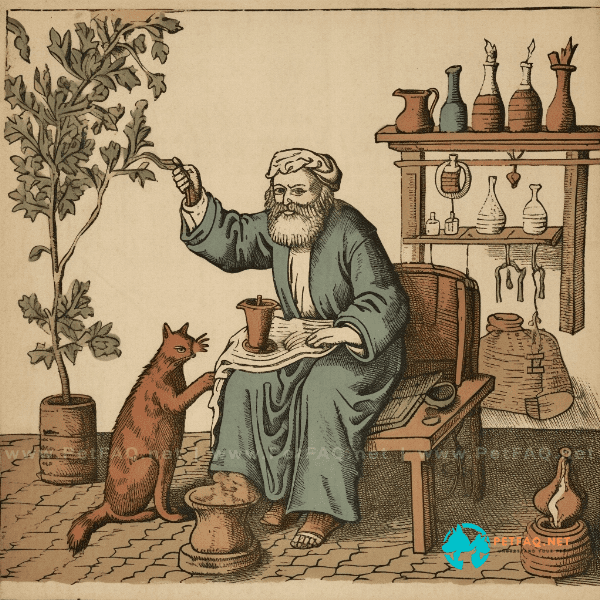
How Catnip Tea Can Benefit Your Cat’s Health
While catnip tea is primarily associated with providing enjoyment to cats, it may also offer some potential health benefits. Here are some ways in which catnip tea may be beneficial for your furry friend:
Soothing Digestive Issues
Catnip tea is believed to have digestive properties that can help alleviate stomach issues in cats. It may help soothe an upset stomach or relieve constipation. However, it is important to note that too much catnip tea can have the opposite effect and lead to diarrhea.
Acting as a Natural Sleep Aid
Due to its relaxing effects, catnip tea may also help induce sleep in cats. This can be particularly useful for cats who have trouble sleeping through the night or who suffer from insomnia.
Reducing Aggression
In some cases, catnip tea may help reduce aggression in cats. This can be especially beneficial in households with multiple cats who may be prone to fighting or displaying territorial behavior.
While catnip tea may offer some potential health benefits for cats, it is important to remember that moderation is key. Too much catnip tea can lead to negative side effects, so it’s important to use it in small amounts and under the guidance of a veterinarian.
In summary, catnip tea may provide some potential health benefits for cats, including soothing digestive issues, promoting relaxation, acting as a natural sleep aid, and reducing aggression. However, it is important to use catnip tea in moderation and under the guidance of a veterinarian.
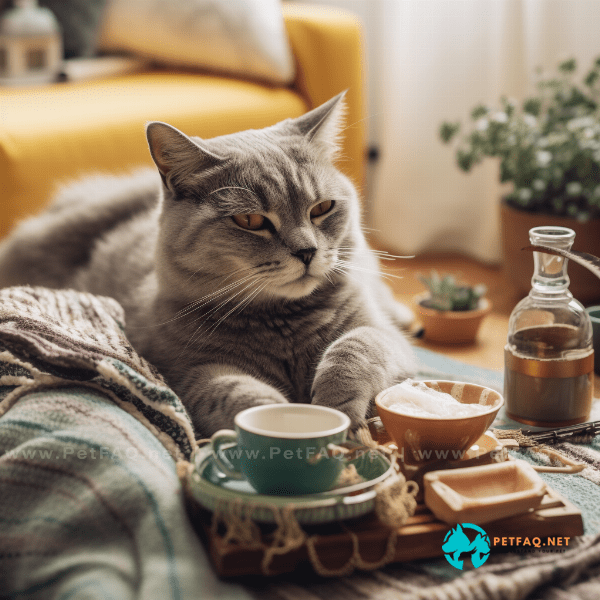
The Relaxing Properties of Catnip Tea for Cats
Catnip tea is known for its relaxing properties and is often used to calm anxious or stressed-out felines. Here are some ways in which catnip tea can help your cat relax:
Inducing Feelings of Calmness
Catnip tea contains nepetalactone, a natural compound that acts as a sedative and can help induce feelings of calmness in cats. This can be particularly helpful for cats who are prone to anxiety or nervousness.
Acting as a Mood Enhancer
Catnip tea is believed to have mood-enhancing properties that can help lift a cat’s spirits. This can be particularly beneficial for cats who are feeling down or depressed.
Easing Muscle Tension
Catnip tea may also help ease muscle tension in cats, particularly in older cats who may suffer from arthritis or other age-related conditions.
It’s important to note that while catnip tea can be beneficial for cats, it may not work for every feline. Additionally, it’s important to use catnip tea in moderation and under the guidance of a veterinarian to ensure that your cat is not experiencing any negative side effects.
In summary, catnip tea is known for its relaxing properties and can help induce feelings of calmness, promote relaxation, act as a mood enhancer, and ease muscle tension in cats. While it may not work for every cat, it can be a useful tool for helping to alleviate stress and anxiety in felines.
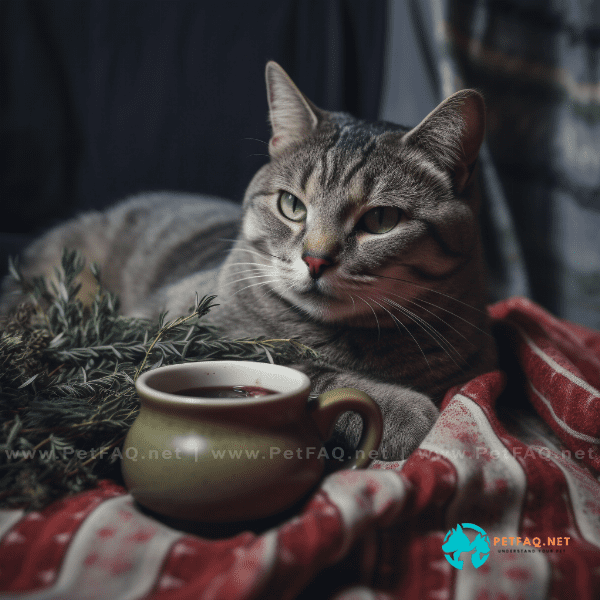
Making Your Own Catnip Tea: A Step-by-Step Guide
Making your own catnip tea is easy and can be a fun way to treat your feline friend. Here’s a step-by-step guide to making catnip tea:
Step 1: Gather Your Ingredients
To make catnip tea, you’ll need dried catnip leaves and flowers, a tea infuser, and hot water. You can purchase dried catnip from pet stores or online retailers.
Step 2: Boil Water
Boil water in a kettle or on a stove. The water should be hot but not boiling.
Step 3: Prepare the Infuser
Place the dried catnip leaves and flowers into a tea infuser. Make sure the infuser is securely closed to prevent any loose catnip from escaping.
Step 4: Steep the Tea
Place the tea infuser into a cup and pour the hot water over it. Let the tea steep for 5-10 minutes, depending on how strong you want the tea to be.
Step 5: Remove the Infuser
Once the tea has steeped for the desired amount of time, remove the infuser from the cup.
Step 6: Let It Cool
Allow the tea to cool to room temperature before serving it to your cat. You can also add ice cubes to the tea to make it more refreshing on hot days.
It’s important to remember that catnip tea should be given to cats in moderation. Too much catnip can lead to negative side effects such as vomiting, diarrhea, or excessive sleepiness.
In conclusion, making your own catnip tea is easy and can be a fun way to treat your cat. With just a few simple steps, you can create a soothing and refreshing drink for your furry friend. Just be sure to use catnip tea in moderation and under the guidance of a veterinarian to ensure that your cat is not experiencing any negative side effects.
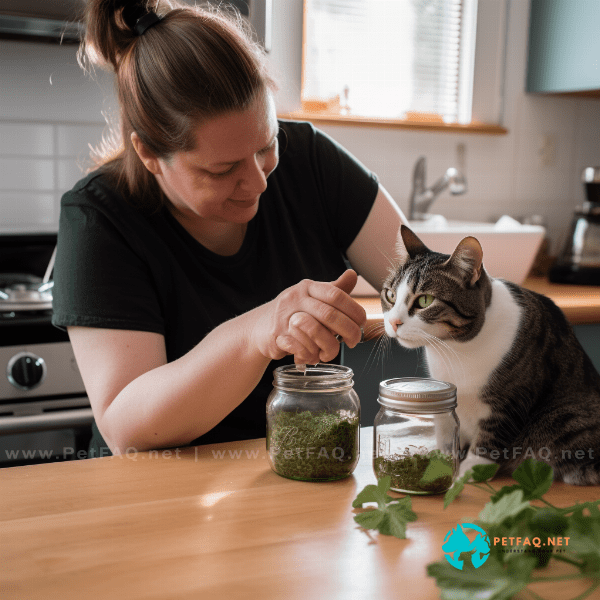
Dosage and Precautions: Using Catnip Tea Safely for Your Cat
While catnip tea can provide potential benefits for your cat, it’s important to use it safely and in moderation. Here are some dosage and precautionary measures to keep in mind when using catnip tea:
Dosage
The appropriate dosage of catnip tea for cats can vary depending on the cat’s weight and size. As a general rule of thumb, a quarter of a teaspoon of dried catnip per pound of body weight can be a good starting point. However, it’s important to start with a small amount and gradually increase the dosage if necessary.
Precautions
Catnip tea should not be given to kittens or pregnant or nursing cats. Additionally, if your cat has a medical condition or is taking medication, it’s important to check with your veterinarian before giving them catnip tea.
Signs of Overdose
While catnip tea is generally safe for cats, it’s important to be aware of the signs of overdose. These can include vomiting, diarrhea, excessive sleepiness, or agitation. If you notice any of these symptoms, stop giving your Cat catnip tea and contact your veterinarian.
Moderation
As with any supplement or treat, it’s important to use catnip tea in moderation. Too much catnip can lead to negative side effects such as vomiting, diarrhea, or excessive sleepiness. It’s recommended to give your cat catnip tea no more than once a week.
In conclusion, using catnip tea safely and in moderation can provide potential benefits for your cat. It’s important to start with a small dosage and gradually increase if necessary, check with your veterinarian if your cat has a medical condition, be aware of the signs of overdose, and use catnip tea no more than once a week. With these precautions in mind, catnip tea can be a soothing and enjoyable treat for your furry friend.
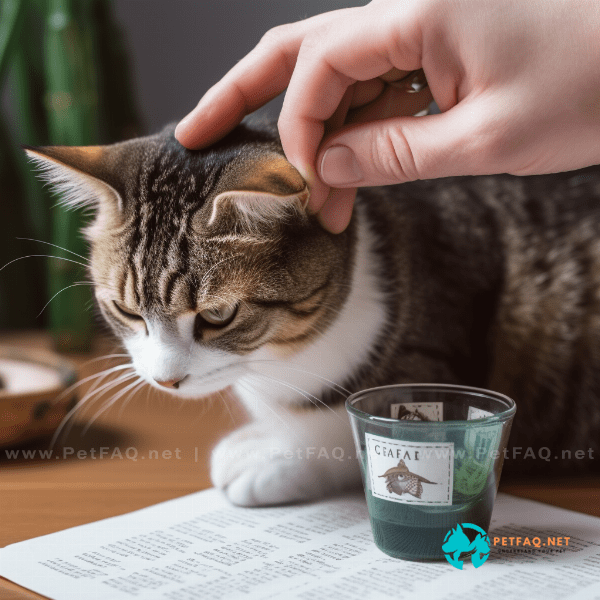
Alternatives to Catnip Tea: Other Herbs for Feline Relaxation
While catnip tea is a popular way to help cats relax, there are other herbs that may offer similar benefits. Here are some alternatives to catnip tea that you can consider:
Valerian Root
Valerian root is a natural sedative that can help calm anxious cats. It can be found in capsule form, or you can make a tea by steeping the dried root in hot water. It’s important to note that valerian root has a strong odor that some cats may not like.
Chamomile
Chamomile is a mild sedative that can help promote relaxation and calmness in cats. It can be brewed into a tea, and some cat owners even add it to their cat’s food as a natural supplement.
Passionflower
Passionflower is a natural relaxant that can help reduce anxiety in cats. It can be found in capsule form or brewed into a tea. It’s important to note that passionflower can have a mild sedative effect, so it’s best to start with a small amount and gradually increase if necessary.
Lavender
Lavender is a fragrant herb that can help calm anxious cats. It can be used in essential oil form, or you can brew dried lavender flowers into a tea. It’s important to note that some cats may be sensitive to lavender, so it’s best to introduce it gradually.
In conclusion, catnip tea is not the only herb that can help promote relaxation and calmness in cats. Valerian root, chamomile, passionflower, and lavender are all natural alternatives that may offer similar benefits. As with any supplement or treatment, it’s important to use these herbs in moderation and under the guidance of a veterinarian to ensure that your cat is not experiencing any negative side effects.
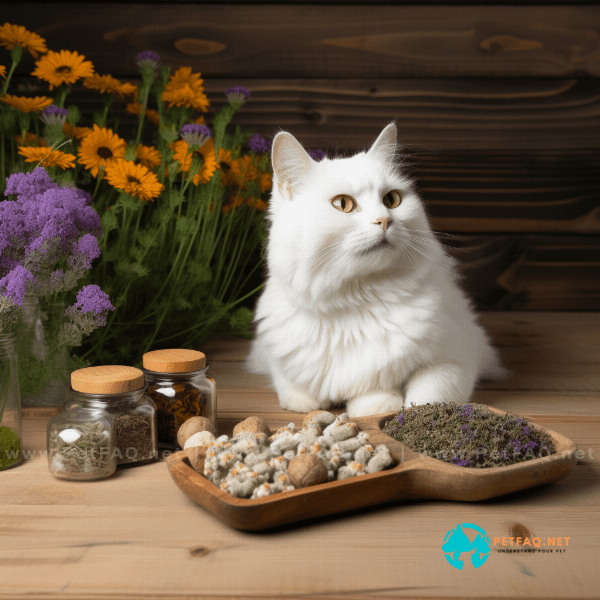
Real-Life Experiences: Cat Owners’ Stories of Using Catnip Tea with Their Cats
Many cat owners have shared their positive experiences with using catnip tea to help their cats relax and de-stress. Here are some real-life stories from cat owners who have used catnip tea with their furry friends:
“My Cat is More Relaxed and Playful!”
“I started giving my cat catnip tea once a week, and I noticed a big difference in her behavior. She used to be very anxious and nervous, but now she’s more relaxed and playful. She even seems to be sleeping better at night!”
“Catnip Tea Helps My Cat with Digestive Issues”
“My cat has always had issues with constipation, and I didn’t want to give her medication. I started giving her catnip tea, and it has really helped with her digestion. She seems to be more comfortable and less bloated.”
“Catnip Tea is Our Special Treat”
“I make catnip tea for my cat as a special treat, and she loves it. It’s become a little ritual for us, and it’s a great way to bond with her. Plus, I love knowing that it’s helping her relax and de-stress.”
“Catnip Tea Helps My Cat with Separation Anxiety”
“My cat gets really anxious when I leave the house, and it breaks my heart to see her like that. I started giving her catnip tea before I left, and it seems to help her stay calm. She’s still a little sad when I leave, but she doesn’t seem as anxious as she used to be.”
In conclusion, many cat owners have shared their positive experiences with using catnip tea to help their cats relax and de-stress. While the benefits of catnip tea may vary depending on the individual cat, it can be a useful tool for promoting relaxation and well-being in felines. As always, it’s important to use catnip tea in moderation and under the guidance of a veterinarian to ensure that your cat is not experiencing any negative side effects.
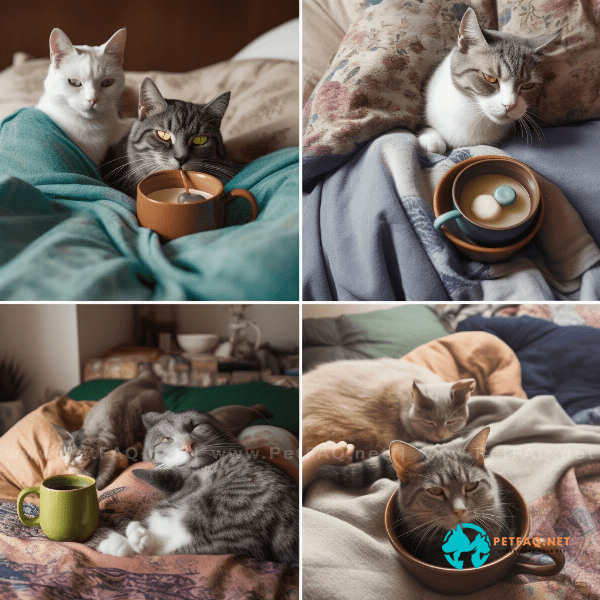
Conclusion: Embracing the Calming Effects of Catnip Tea for Your Feline Friend
Catnip tea can be a safe and effective way to help your cat relax and de-stress. From inducing feelings of calmness and promoting relaxation, to easing muscle tension and acting as a mood enhancer, catnip tea offers a variety of potential benefits for cats.
It’s important to use catnip tea in moderation and under the guidance of a veterinarian, and to be aware of the signs of overdose or negative side effects. Additionally, there are other herbs such as valerian root, chamomile, passionflower, and lavender that can offer similar benefits.
Many cat owners have shared their positive experiences with using catnip tea with their cats, from helping with digestive issues to easing separation anxiety. Whether you decide to make your own catnip tea or try a different herb, embracing the calming effects of these natural remedies can be a great way to promote relaxation and well-being in your feline friend.
In summary, catnip tea can be a useful tool for helping your cat relax and de-stress, but it should always be used in moderation and under the guidance of a veterinarian. With proper care and attention, catnip tea and other herbs can be a great way to support your cat’s health and happiness.
Frequently Asked Questions (FAQs) about catnip tea:
1. Can catnip tea help with anxiety or stress?2. What are the benefits of drinking catnip tea?
3. What are the side effects of catnip tea?
4. Does catnip tea have a sedative effect on humans?
5. What does catnip tea taste like?


